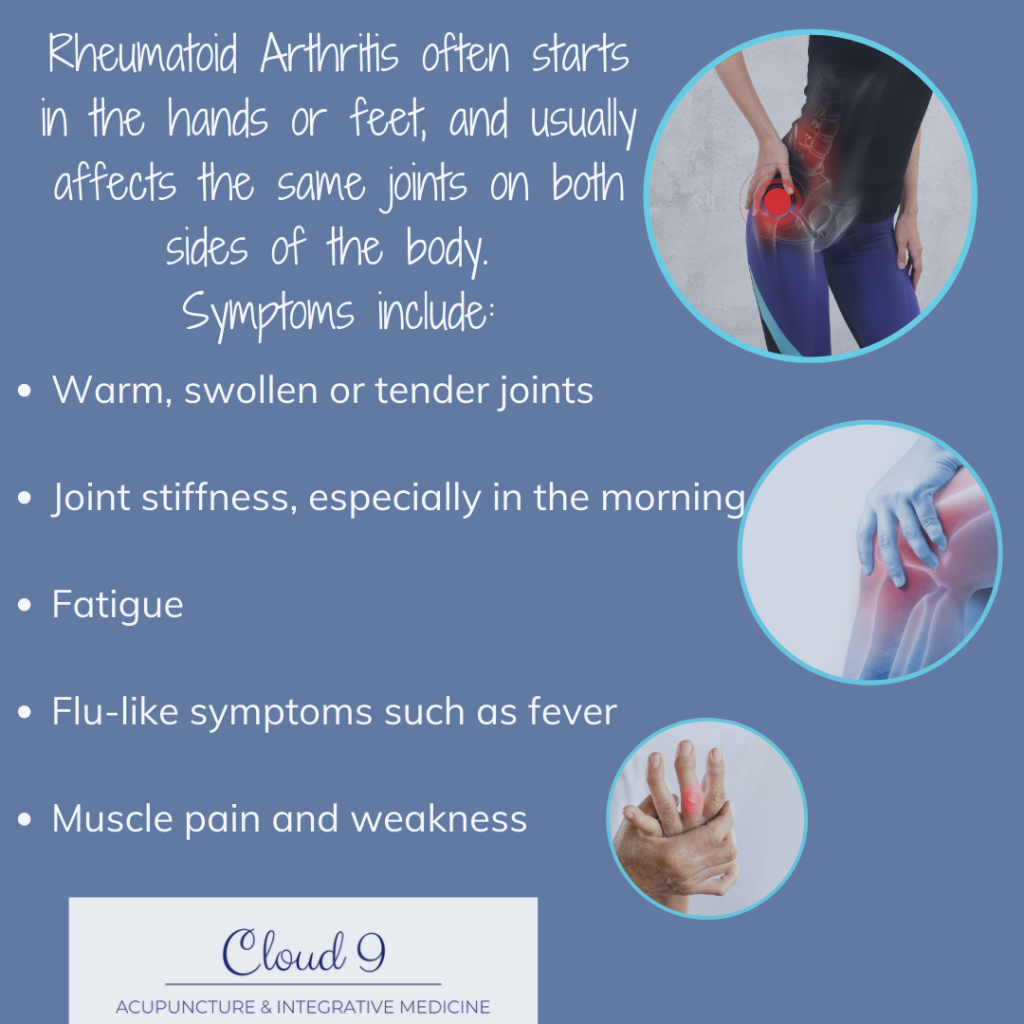- Cloud 9 Acupuncture & Integrative Medicine22 West Padonia Rd. Suite A-203
Timonium, MD 21093 - By Appointment Only
-
Latest Articles:
- • Add These 10 Immune-Boosting Foods to Your Fall Diet •
- • Keep Your Skin Healthy and Glowing with these Fall Skincare Tips •
- • Beat End of Year Burnout with these Fall Self-Care Rituals •
Acupuncture
Neuropathy Relief with Acupuncture
Neuropathy is a condition that affects the peripheral nerves, causing pain, tingling, and numbness in the affected areas. While there are several treatment options available, acupuncture has gained popularity as a natural and effective method to alleviate neuropathic symptoms.
When it comes to neuropathy, acupuncture targets the affected nerves, promoting blood circulation and reducing inflammation. This stimulation triggers the release of endorphins, the body’s natural painkillers, providing relief from neuropathic pain.
Studies have shown that acupuncture can significantly reduce neuropathy symptoms and improve nerve function. It is a safe and non-invasive treatment option that can be used alongside conventional therapies.
In conclusion, acupuncture offers a promising alternative for individuals suffering from neuropathy. Its ability to address the root cause of the condition and provide relief makes it an attractive choice for many. Consider exploring this ancient therapy to manage your neuropathy symptoms effectively.

Acupuncture Success With Fertility
Fertility acupuncture is a natural and effective way to enhance fertility and increase the chances of conceiving.
By inserting thin needles into specific points on the body, fertility acupuncture helps regulate hormones, improve blood circulation to the reproductive organs, and reduce stress and anxiety. It can also address underlying conditions such as polycystic ovary syndrome (PCOS), fibroids, and endometriosis that may hinder fertility. It also helps with unexplained infertility.
Studies have shown that fertility acupuncture can significantly improve pregnancy rates when used in conjunction with assisted reproductive techniques like IVF. It enhances egg quality, increases implantation rates, and reduces the risk of miscarriage.
For couples struggling with infertility, fertility acupuncture offers a safe, natural, and holistic approach to optimize their chances of conceiving. It provides a gentle and supportive environment for the body to heal and prepare for pregnancy, ultimately increasing the likelihood of a successful and healthy pregnancy.
Call to begin today with Couples Consultation at Cloud 9 Acupuncture! (410) 847-4766

Acupuncture for Treating Leaky Gut Syndrome

There are a variety of gastrointestinal and autoimmune diseases that can contribute to what is known as leaky gut syndrome. So, what exactly is leaky gut syndrome? It’s close to exactly what it sounds like. Each one of us has semi-permeable guts. What that means is the mucous lining of our intestines is designed to absorb water and nutrients from our food. Your intestinal lining is responsible for acting as a barrier to bacteria. With leaky gut syndrome, your intestinal lining “leaks” allowing more water and nutrients through, but also potentially allowing toxic molecules to come through as well. continue reading
Microneedling: A Simple Procedure with Big Results
Microneedling is a minimally invasive cosmetic procedure that can be used to improve the appearance of the skin. It involves the use of a small device with fine needles to create tiny punctures in the skin. This triggers the body’s natural healing response, which produces new collagen and elastin.
Microneedling can be used to treat a variety of skin conditions, including:
- Fine lines and wrinkles
- Acne scars
- Stretch marks
- Enlarged pores
- Hyperpigmentation
- Hair loss
Benefits of Microneedling
Microneedling is a safe and effective procedure with minimal downtime. It is also relatively affordable, making it a popular option for people who are looking for a way to improve their skin without surgery.
How Microneedling Works
During a microneedling procedure, the skin is first cleansed and numbed. The device is then passed over the skin, creating tiny punctures. The depth of the needles can be adjusted to treat different areas of the skin.
After the procedure, the skin may be slightly red and swollen, like you’ve been in the sun. However, these side effects typically subside within a few hours.
What to Expect After Microneedling
Most people see results within a few weeks of microneedling. However, it may take several months to see the full results.
Microneedling vs. Other Cosmetic Procedures
Microneedling is a less invasive and less expensive alternative to other cosmetic procedures, such as laser resurfacing and chemical peels. However, it may not be as effective for treating deep wrinkles or scars.
How to Find a Microneedling Provider
It is important to find a qualified microneedling provider. Ask your doctor for a referral or search for a provider online. Be sure to read reviews and check the provider’s credentials.
Tips for Preparing for a Microneedling Procedure
Here are a few tips for preparing for a microneedling procedure:
- Avoid sun exposure for several weeks before the procedure.
- Do not use any tanning products or exfoliate your skin for a few days before the procedure.
- Tell your doctor about any medications you are taking, including over-the-counter medications.
Microneedling is a safe and effective procedure that can improve the appearance of the skin. If you are considering microneedling, be sure to call today to schedule a consultation at 410-847-4766 and explore Holiday Specials while they last!

Acupuncture for Rheumatoid Arthritis: A Path to Pain Relief and Improved Quality of Life
Rheumatoid arthritis (RA) is a chronic autoimmune disease that affects the joints and connective tissues. It is characterized by joint pain, inflammation, stiffness, and fatigue. While there is no cure for RA, there are treatments available that can help to manage the symptoms and slow the progression of the disease.
One of the complementary therapies that is gaining popularity for the treatment of RA is acupuncture. Acupuncture is a traditional Chinese medicine technique that involves inserting thin needles into specific points on the body. It is believed to work by stimulating the body’s natural healing system and restoring balance to the body’s energy.
Evidence Supporting Acupuncture for RA
A growing body of research suggests that acupuncture may be an effective treatment for RA. A review of 43 studies found that acupuncture was associated with improvements in pain, joint function, and quality of life in people with RA. Another study found that acupuncture was more effective than sham acupuncture for reducing pain in people with RA.
How Acupuncture May Work for RA
There are several possible mechanisms by which acupuncture may work for RA. One possibility is that acupuncture stimulates the release of endorphins, which are the body’s natural pain relievers. Another possibility is that acupuncture helps to reduce inflammation, which is a key factor in RA.
What to Expect from Acupuncture Treatment
Acupuncture treatments typically last about 30 minutes. During treatment, you will be lying down or reclining in a comfortable position. The acupuncturist will insert thin needles into specific points on your body. You may feel a slight prick when the needles are inserted, but most people do not find acupuncture to be painful.
Acupuncture for RA: What the Experts Say
The Arthritis Foundation has stated that “there is some evidence to suggest that acupuncture may be helpful for the management of pain and function in people with RA.” The National Center for Complementary and Integrative Health (NCCIH) has also stated that “acupuncture may be helpful for the management of pain and other symptoms of RA.”
Is Acupuncture Safe for RA?
Acupuncture is generally considered to be safe. However, there are some potential side effects, such as bruising, bleeding, and pain at the needle insertion site. In rare cases, acupuncture can cause more serious side effects, such as infection or nerve damage.
Begin with a Consultation
If you are considering acupuncture for RA, it is important to begin with a consultation. Call 410-847-4766 today.
Acupuncture is a safe and effective treatment option for many people with RA. If you are looking for a natural way to manage your pain and improve your quality of life, acupuncture may be worth considering.


